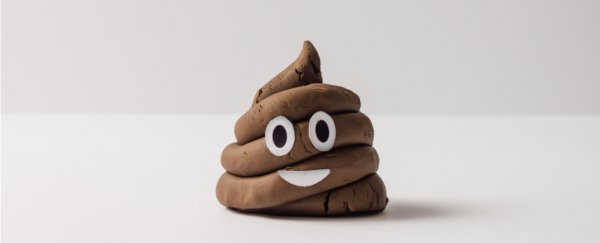Since the internet first heard about poo transplants, perceptions of this procedure have changed from everyone freaking out to a growing appreciation of gut microbiota and its complexities.
Now a study has shown that for people with a type of dangerous gut infection, a poo treatment doesn't even have to involve a colonoscopy - it's enough to swallow capsules instead.
It is now generally accepted that faecal microbiota transplantation (FMT) is the most effective treatment for resistant, recurring diarrhoea caused by the Clostridium difficile bacterium - especially since antibiotic resistance continues to weaken our weapons against infectious disease.
C. difficile infection is the most common cause of severe diarrhoea that can land you in the hospital and even be potentially life-threatening. If the condition becomes severe, it can cause dehydration, dangerous colon inflammation and even kidney failure.
When treated with antibiotics, 10 to 30 percent of patients will have a recurrence. And the more times the infection comes back, the less effective are antibiotics at relieving the suffering.
Meanwhile studies have shown that an FMT done via a colonoscopy can prevent C. difficile recurrence with a 90 percent efficacy, which is pretty damn good.
Knowing this, doctors have been investigating new ways to administer the poo transplant, trying to measure up whether it has to be delivered via an invasive colonoscopy straight into the plumbing, or whether it's possible to just swallow the FMT in the form of a sealed capsule.
A team at the University of Alberta, Canada, recently compared the two approaches by performing a bunch of FMTs on long-suffering diarrhoea patients.
The poo came from seven healthy volunteer donors. It was processed in the lab to produce a slurry that could be mixed with a preservative and kept frozen until needed, either in slushy form for colonoscopic transplantation or in the form of capsules.
The trial included 116 patients with recurrent C. difficile infections, randomly split into two groups - 57 people got treatment with the faecal capsules, while the other 59 got a more standard faecal transplant via colonoscopy.
After 12 weeks, 96.2 percent of the participants remained free of recurrent infection, which demonstrates that both treatments performed equally well (this is known as a non-inferiority trial).
Both groups attested to significant improved quality of life, and even though most participants said they found faecal transplants gross, 97 percent of them said they'd go through the procedure again if it became necessary.
It's worth noting that capsules had a higher success rate in this study than in previous attempts to compare the two delivery routes. The team attributes this to the higher poo dose used in their capsules along with the potential benefit of whole bowel irrigation done the night before the treatment.
But the study also had some limitations, such as the lack of a placebo group which would have allowed them to measure the magnitude of the poo transplant effect. They also note it wasn't practical to do the trial blinded, as the patients who received capsules would still have to undergo a 'sham' colonoscopy for no benefit.
And other experts in the field maintain that poo capsules may still end up not being the ultimate gastric infection cure.
"While it is encouraging that capsules appear to be a viable delivery route for FMT, a number of additional approaches still deserve consideration in future research," infectious disease specialist Krishna Rao and colleagues write in an editorial accompanying the study.
What they have in mind are things like sterile filtrates derived from poop but without any actual bacteria, or even a 'designer' supplement containing a host of what we know to be the right beneficial microbes for fighting the infection.
Researchers have been working to determine the exact ingredients of a good poo transplant, so we're well on our way to cutting out the faecal step of the process and go straight to the helpful bugs.
"When scientists identify the specific cocktails that produce the positive outcomes, then they can synthesise or grow them and put them in a pill," biologist Seth Bordenstein from Vanderbilt University said last year.
But for now, FMTs still remain the most effective therapy for nasty, resistant C. difficile infections. And for those affected, it's nice to know it may be possible to just shove that poop into a capsule instead of having to do a whole colonoscopy.
The study was published in the Journal of the American Medical Association (JAMA).
